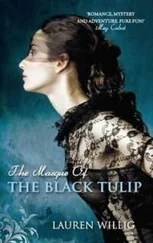Van Baerle began by expending his yearly revenue in laying the groundwork of his collection, after which he broke in upon his new guilders to bring it to perfection. His exertions, indeed, were crowned with a most magnificent result: he produced three new tulips, which he called the "Jane," after his mother; the "Van Baerle," after his father; and the "Cornelius," after his godfather; the other names have escaped us, but the fanciers will be sure to find them in the catalogues of the times.
In the beginning of the year 1672, Cornelius de Witt came to Dort for three months, to live at his old family mansion; for not only was he born in that city, but his family had been resident there for centuries.
Cornelius, at that period, as William of Orange said, began to enjoy the most perfect unpopularity. To his fellow citizens, the good burghers of Dort, however, he did not appear in the light of a criminal who deserved to be hung. It is true, they did not particularly like his somewhat austere republicanism, but they were proud of his valour; and when he made his entrance into their town, the cup of honour was offered to him, readily enough, in the name of the city.
After having thanked his fellow citizens, Cornelius proceeded to his old paternal house, and gave directions for some repairs, which he wished to have executed before the arrival of his wife and children; and thence he wended his way to the house of his godson, who perhaps was the only person in Dort as yet unacquainted with the presence of Cornelius in the town.
In the same degree as Cornelius de Witt had excited the hatred of the people by sowing those evil seeds which are called political passions, Van Baerle had gained the affections of his fellow citizens by completely shunning the pursuit of politics, absorbed as he was in the peaceful pursuit of cultivating tulips.
Van Baerle was truly beloved by his servants and labourers; nor had he any conception that there was in this world a man who wished ill to another.
And yet it must be said, to the disgrace of mankind, that Cornelius van Baerle, without being aware of the fact, had a much more ferocious, fierce, and implacable enemy than the Grand Pensionary and his brother had among the Orange party, who were most hostile to the devoted brothers, who had never been sundered by the least misunderstanding during their lives, and by their mutual devotion in the face of death made sure the existence of their brotherly affection beyond the grave.
At the time when Cornelius van Baerle began to devote himself to tulip-growing, expending on this hobby his yearly revenue and the guilders of his father, there was at Dort, living next door to him, a citizen of the name of Isaac Boxtel who from the age when he was able to think for himself had indulged the same fancy, and who was in ecstasies at the mere mention of the word "tulban," which (as we are assured by the "Floriste Francaise," the most highly considered authority in matters relating to this flower) is the first word in the Cingalese tongue which was ever used to designate that masterpiece of floriculture which is now called the tulip.
Boxtel had not the good fortune of being rich, like Van Baerle. He had therefore, with great care and patience, and by dint of strenuous exertions, laid out near his house at Dort a garden fit for the culture of his cherished flower; he had mixed the soil according to the most approved prescriptions, and given to his hotbeds just as much heat and fresh air as the strictest rules of horticulture exact.
Isaac knew the temperature of his frames to the twentieth part of a degree. He knew the strength of the current of air, and tempered it so as to adapt it to the wave of the stems of his flowers. His productions also began to meet with the favour of the public. They were beautiful, nay, distinguished. Several fanciers had come to see Boxtel's tulips. At last he had even started amongst all the Linnaeuses and Tourneforts a tulip which bore his name, and which, after having travelled all through France, had found its way into Spain, and penetrated as far as Portugal; and the King, Don Alfonso VI.—who, being expelled from Lisbon, had retired to the island of Terceira, where he amused himself, not, like the great Conde, with watering his carnations, but with growing tulips—had, on seeing the Boxtel tulip, exclaimed, "Not so bad, by any means!"
All at once, Cornelius van Baerle, who, after all his learned pursuits, had been seized with the tulipomania, made some changes in his house at Dort, which, as we have stated, was next door to that of Boxtel. He raised a certain building in his court-yard by a story, which shutting out the sun, took half a degree of warmth from Boxtel's garden, and, on the other hand, added half a degree of cold in winter; not to mention that it cut the wind, and disturbed all the horticultural calculations and arrangements of his neighbour.
After all, this mishap appeared to Boxtel of no great consequence. Van Baerle was but a painter, a sort of fool who tried to reproduce and disfigure on canvas the wonders of nature. The painter, he thought, had raised his studio by a story to get better light, and thus far he had only been in the right. Mynheer van Baerle was a painter, as Mynheer Boxtel was a tulip-grower; he wanted somewhat more sun for his paintings, and he took half a degree from his neighbour's tulips.
The law was for Van Baerle, and Boxtel had to abide by it.
Besides, Isaac had made the discovery that too much sun was injurious to tulips, and that this flower grew quicker, and had a better colouring, with the temperate warmth of morning, than with the powerful heat of the midday sun. He therefore felt almost grateful to Cornelius van Baerle for having given him a screen gratis.
Maybe this was not quite in accordance with the true state of things in general, and of Isaac Boxtel's feelings in particular. It is certainly astonishing what rich comfort great minds, in the midst of momentous catastrophes, will derive from the consolations of philosophy.
But alas! What was the agony of the unfortunate Boxtel on seeing the windows of the new story set out with bulbs and seedlings of tulips for the border, and tulips in pots; in short, with everything pertaining to the pursuits of a tulip-monomaniac!
There were bundles of labels, cupboards, and drawers with compartments, and wire guards for the cupboards, to allow free access to the air whilst keeping out slugs, mice, dormice, and rats, all of them very curious fanciers of tulips at two thousand francs a bulb.
Boxtel was quite amazed when he saw all this apparatus, but he was not as yet aware of the full extent of his misfortune. Van Baerle was known to be fond of everything that pleases the eye. He studied Nature in all her aspects for the benefit of his paintings, which were as minutely finished as those of Gerard Dow, his master, and of Mieris, his friend. Was it not possible, that, having to paint the interior of a tulip-grower's, he had collected in his new studio all the accessories of decoration?
Yet, although thus consoling himself with illusory suppositions, Boxtel was not able to resist the burning curiosity which was devouring him. In the evening, therefore, he placed a ladder against the partition wall between their gardens, and, looking into that of his neighbour Van Baerle, he convinced himself that the soil of a large square bed, which had formerly been occupied by different plants, was removed, and the ground disposed in beds of loam mixed with river mud (a combination which is particularly favourable to the tulip), and the whole surrounded by a border of turf to keep the soil in its place. Besides this, sufficient shade to temper the noonday heat; aspect south-southwest; water in abundant supply, and at hand; in short, every requirement to insure not only success but also progress. There could not be a doubt that Van Baerle had become a tulip-grower.
Читать дальше












